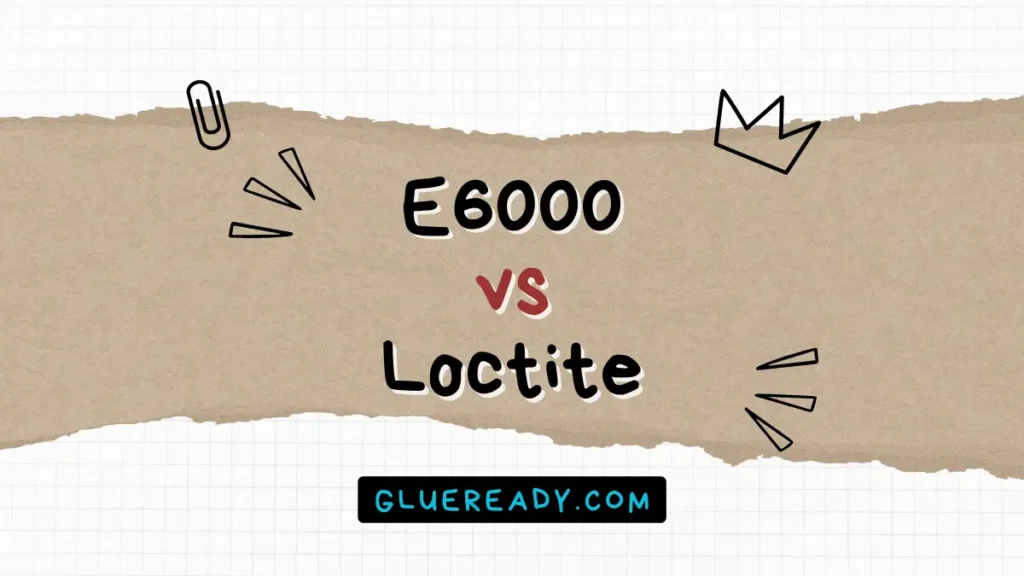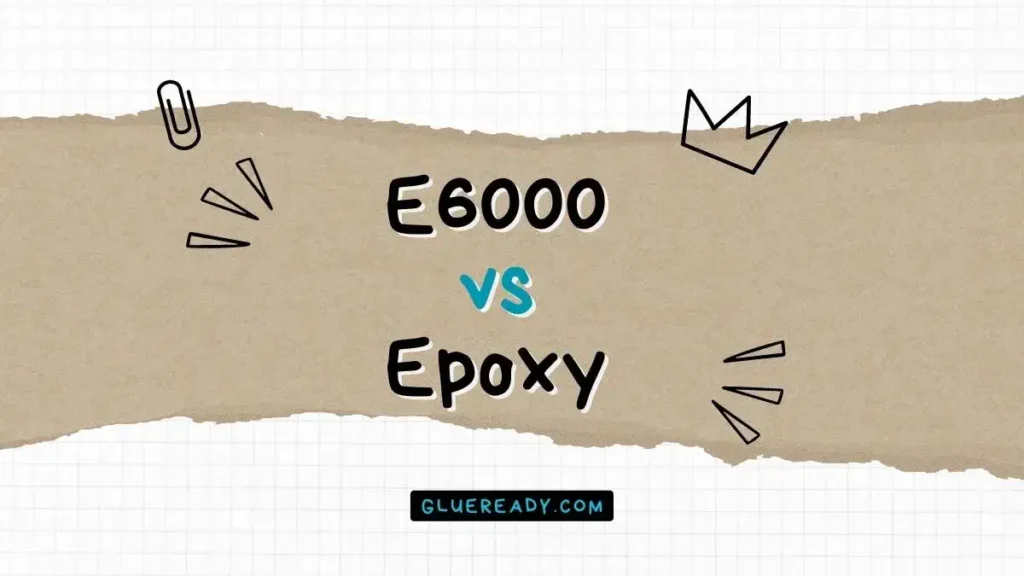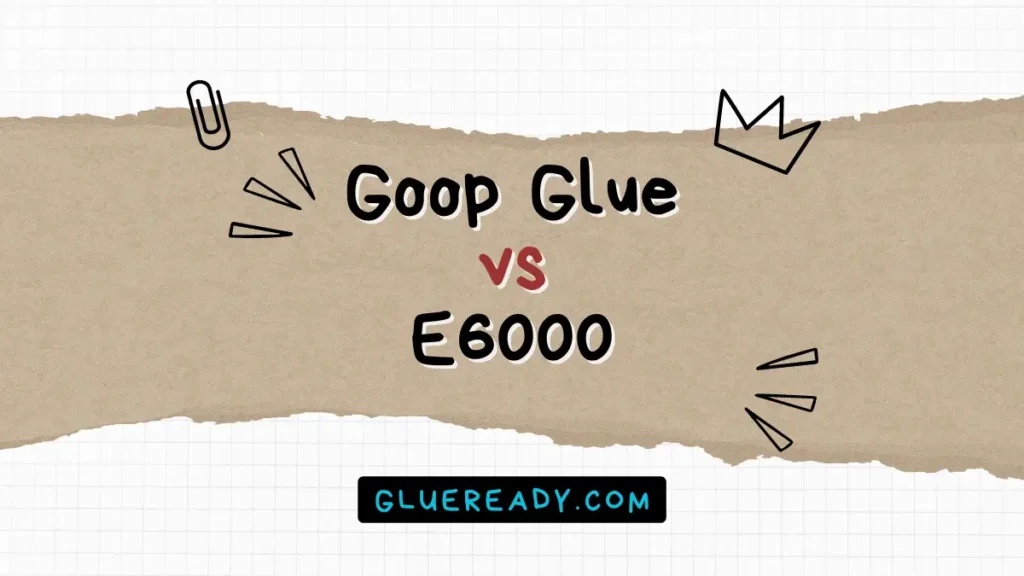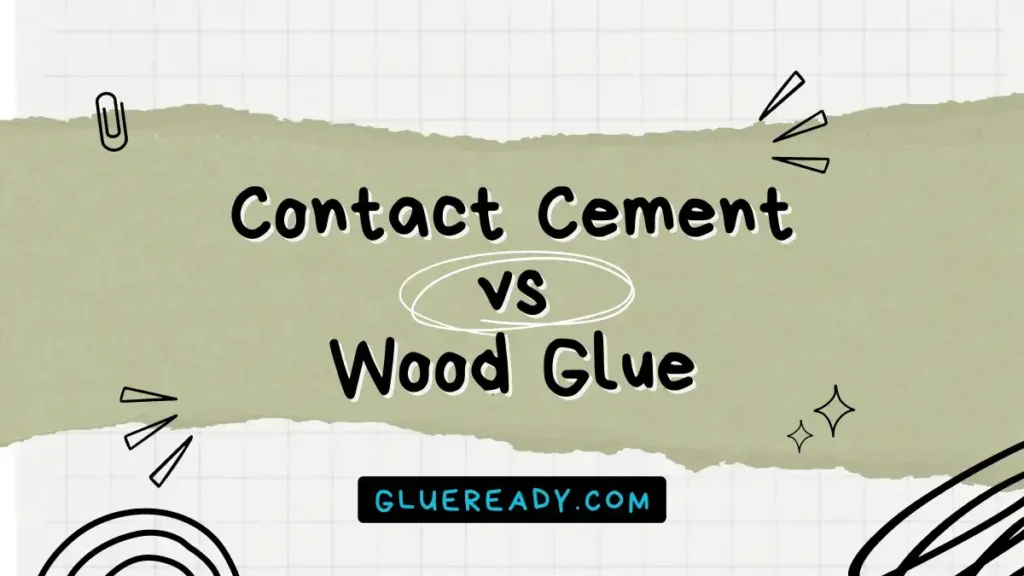E6000 vs JB Weld | Things You Should Know!
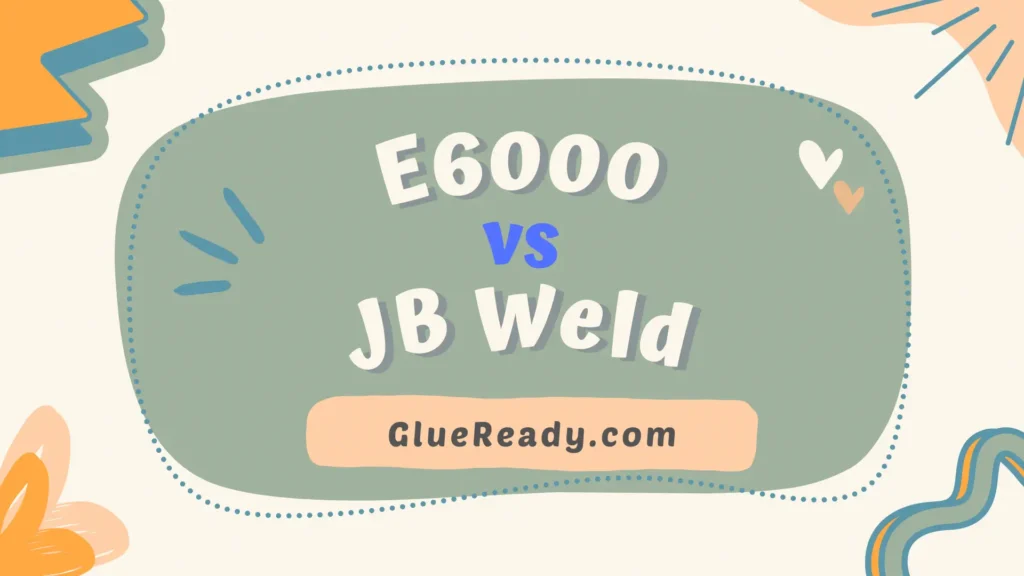
If you need a glue that can handle any challenge, whether it’s metal, wood, leather, or fabric. You might have heard of E6000 and JB Weld, two of the most trusted names in the adhesive industry.
E6000 adhesive is affordable and strong. It’s good for industrial use and leather. JB Weld is strong and versatile. It’s good for repairs and DIYs.
In this article, I will compare E6000 vs JB Weld in detail and help you decide which one is more suitable for your needs.
Know More: E6000 vs Epoxy
What is E6000 Adhesive?
E6000 is a special glue that has a gas formula that levels itself and sticks very strongly.
You can use it on metal, plastics, leather, rubber, wood, masonry, vinyl and more. It does not get damaged by water, dilute, chemicals, or acid.
E6000 is great for soft things or hose connectors. It is also bendy and can make the materials stronger.
E6000 is good for making things or fixing things by yourself. It is stretchy and covers the area well. It dries fast and you can wash it safely. It will stay permanent forever.
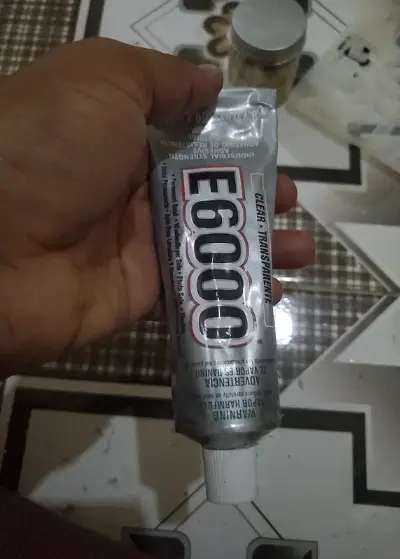
E6000 Applications
- Jewelry making
- Leather crafting
- Fabric bonding
- Shoe repair
- Hose repair
- Vinyl siding repair
- Rubber gasket repair
What is JB Weld?
JB Weld is considered to be one of the strongest adhesives in the world. It is mainly a two-part epoxy glue ideal for materials like metal, wood, porcelain, ceramic, concrete, fabric, glass, fiberglass, PVC, marble, ABS, and more.
JB Weld can withstand temperatures up to 550°F (287°C) and pressures up to 3960 psi (272 bar). It can also resist water, oil, gasoline, diesel, and most chemicals.
JB Weld can be used to fix holes, leaks, cracks, gaps, dents, and scratches in a variety of items. It is also useful for bonding dissimilar materials together.
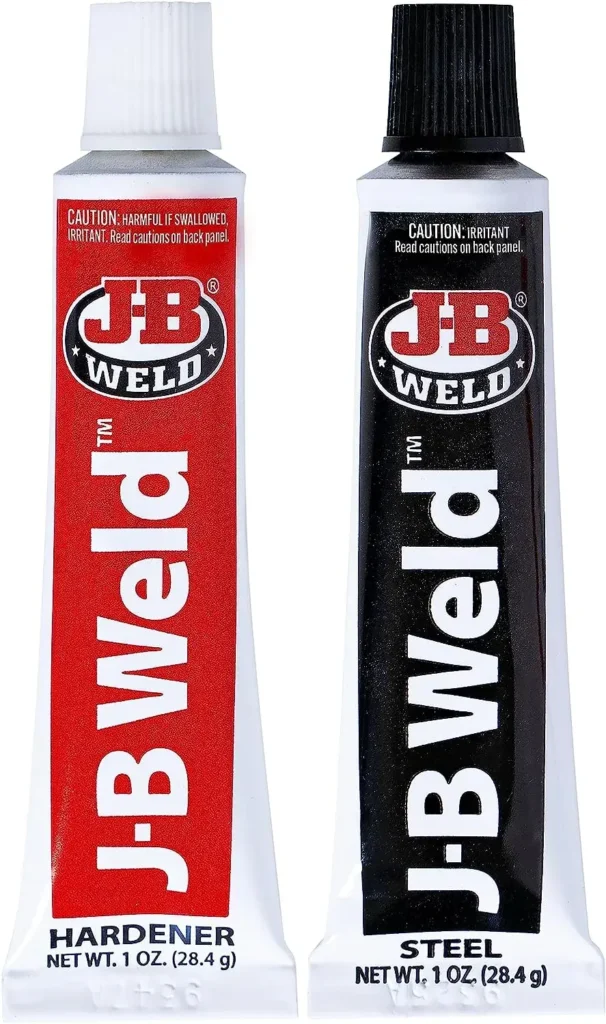
JB Weld Applications
- Metal repair
- Glass repair
- Ceramic repair
- Wood repair
- Fiberglass repair
- Concrete repair
- Automotive repair
E6000 vs JB Weld Comparison Table
| Feature | E6000 Adhesive | JB Weld |
| Color | Clear or black | Gray or clear |
| Type | Single-part adhesive | Two-part epoxy |
| Working Time | 2 to 10 minutes | 25 minutes |
| Curing Time | 24 to 72 hours | 15 to 24 hours |
| Temperature Resistance | Up to 150°F (66°C) | Up to 550°F (287°C) |
| Flexibility | Yes | No |
| Odor | Strong | Mild |
| Pressure Resistance | Up to 3500 PSI | Up to 5020 PSI |
How To Choose Between E6000 and JB Weld?
To choose between E6000 and JB Weld, you should consider the following factors:
The Type of Material You Want to Bond
E6000 works well on rubber, metal, masonry, leather, plastics, wood, and vinyl. JB Weld works well on metal, glass, ceramic, porcelain, wood, fiberglass, paper, concrete, marble, PVC, ABS, fabric, and more.
The Strength and Durability You Need
JB Weld is stronger and more durable than the E6000 glue. It is highly resistant to high temperatures and pressures, as well as being effective at filling gaps and cracks. It also has excellent resistance to water, oil, gasoline, and chemicals.
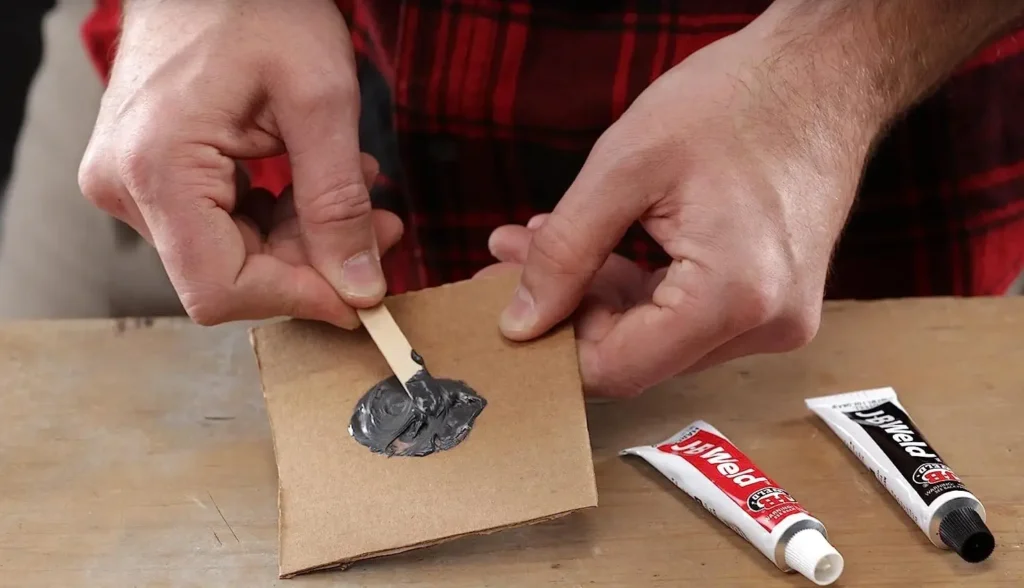
E6000 is more flexible and elastic than JB Weld. It can stretch up to 900% of its original size without breaking. It also has water, dilute, chemicals, and acid resistance.
The Cure Time and Ease of Use
E6000 is faster and easier to use than JB Weld. It takes only 2 minutes to get tacky and 10 minutes to set. It cures within 24-72 hours, depending on the humidity and temperature. You can also use a dryer to provide heat and set it up instantly.
JB Weld requires 4-6 hours of set time and 15-24 hours of cure time before it can be fully used. You also need to mix the two parts of the epoxy glue before applying it.
The Price and Availability
E6000 is cheaper and more widely available than JB Weld. However, the price may vary depending on the retailer and the type of product.
Know More: Liquid Fusion Glue vs E6000
Frequently Asked Questions (FAQs)
Can E6000 Be Used on Metal?
Yes, E6000 can be used on metal. It is an industrial-strength adhesive that bonds to metal, plastics, masonry, wood, rubber, leather, and vinyl.
Is J-B Weld Very Strong?
Yes, JB Weld is considered to be very strong. It has a tensile strength of 3900-5020 PSI and can withstand temperatures up to 550-600 degrees Fahrenheit.
What Will J-B Weld Not Stick To?
According to the official website of JB Weld, their products will not adhere or bond well to: canvas, leather, or vinyl (use their LeatherWeld kit for these repairs), Polyethylene plastic, Polypropylene plastic, and any flexible rubber surface.
Is J-B Weld Just Glue?
The J-B Weld brand is more than just glue. This epoxy adhesive is specialized for bonding high-temperature materials.
Final Thoughts
Actually, E6000 and JB Weld are both good adhesives, but they have different features that make them suitable for different applications.
E6000 and JB Weld are both good glues, but they have different purposes. E6000 is cheaper and more flexible, and it can bond leather well. JB Weld is stronger and more durable, and it can fix metals and plastics better.
Depending on your project needs, you may find one of these adhesives more suitable than the other.


